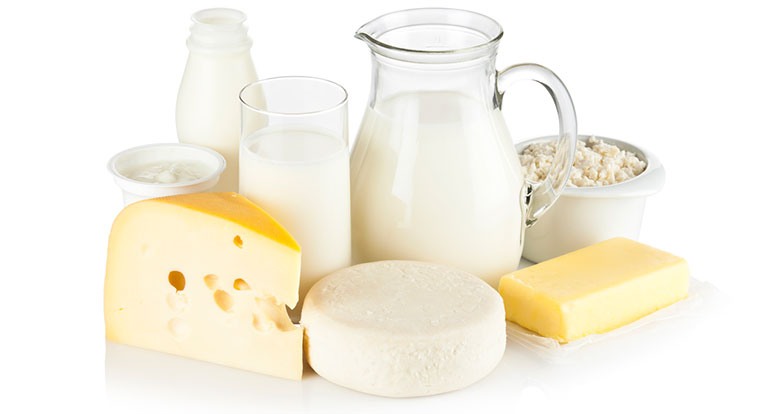Did you know that osteoporosis can be prevented with a healthy diet? Dietitians from the Department of Dietetics at Singapore General Hospital (SGH) share more.
Did you know that many people do not know they have osteoporosis until they break or fracture a bone?
Osteoporosis describes a condition in which bones lose their density and become so brittle and weak that they can fracture even with the slightest exertions such as coughing or bending down. Ouch!
"This potentially disabling bone disease may not be completely reversible, but you can stop it from becoming worse by adopting a healthy diet rich in calcium and vitamin D," according to dietitians from the
Department of Dietetics at
Singapore General Hospital (SGH), a member of the
SingHealth group.
Besides taking medication to slow down osteoporosis, consuming enough dietary calcium that meets the Recommended Dietary Allowance (RDA) is essential.
The RDA for daily calcium intake is :
Healthy diet for stronger bones
A healthy diet rich in calcium, minerals, and vitamin D will complement any medications or calcium supplements you are taking to slow down osteoporosis.
Calcium

Include these calcium-rich foods in your diet for good bone health or to prevent further bone loss:
- Calcium-fortified milk
(one cup, 500 to 600mg calcium)
- Calcium-fortified soymilk
(one cup, 450mg calcium)
- Cheese
(one slice, 150-200mg calcium)
- Dark green vegetables
(one serving of broccoli, kai lan or spinach, 50-200mg calcium)
- Canned sardines
(100g, 300mg calcium)
Vitamin D
Vitamin D is found in eggs, sundried shitake mushrooms, vitamin D-fortified milk, and fatty fish such as tuna, mackerel and salmon.
Some tips:
Other dietary considerations
Other minerals and vitamins are important for good bone health. You only need a small amount of these:
Magnesium (found in avocado, banana, dried apricots, nuts, tofu, whole grains, peas and beans)
Zinc (found in meat, shellfish, seeds and nuts like almonds, pumpkin and sunflower seeds)
Vitamin A (found in carrots, spinach, kale, sweet potatoes, and winter squash)
Vitamin B (found in whole grains, meat, eggs, beans, tempeh, lentils, legumes, and milk)
Vitamin K (found in leafy greens and cruciferous vegetables)
Osteoporosis: what causes bone loss?
Rapid bone loss is a result of many factors, though menopausal and middle-aged women (aged 50 and older) and the elderly are at higher risk. These factors include:
Low oestrogen in women (due to menopause, extreme athletic training or eating disorders)
Low testosterone in men (due to andropause, testicular or pituitary gland dysfunctions)
Overactive thyroid gland
Low calcium and vitamin D intakes
Sedentary lifestyles
Long-term intake of certain cancer drugs and steroid medications such as Femara for breast cancer treatment and corticosteroids for asthma and rheumatoid arthritis
Symptoms of osteoporosis
Back pain
Stooped posture
Loss of height
Bone fractures (usually in the hips, wrist or spine)
Fun fact: Osteoporosis is derived from the words “osteo” meaning bones, and “porosis”, meaning porous or cavities. So this is your little bit of trivia learnt today to impress your friends at conversations!
Ref: J22
